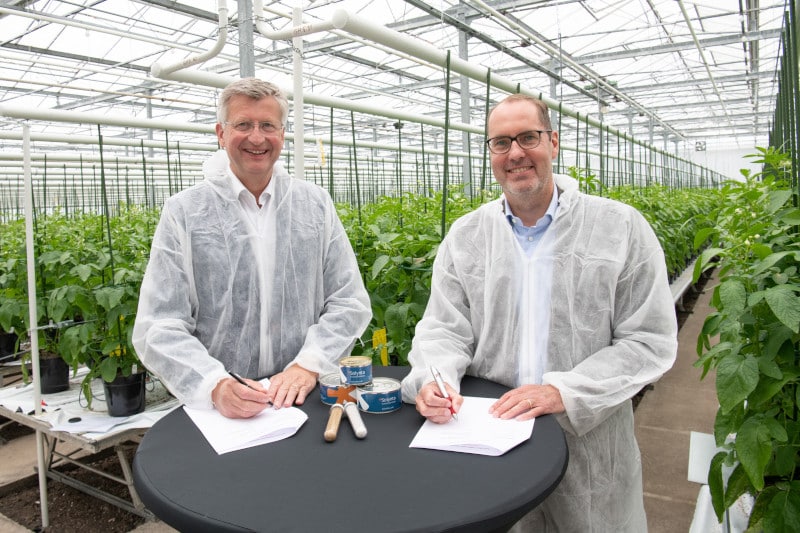Just over a year ago, 52 percent of UK citizens voted to leave the European Union (EU), a move that has raised a great many questions in the agricultural community. Talks began mid-June with the hope that a deal can be reached by the autumn of 2018. The UK’s official exit date is March 29, 2019, which means farmers and agribusinesses have just under two years to prepare for business in a post-Brexit world.
Cedric Porter, managing editor of World Potato Markets, is concerned about the transition. At the EuroPatat conference, held in Antwerp, Belgium in June, Porter said it might not go as smoothly as people expect, pointing to the Canada-Belgium issue during CETA trade talks as an example of what could happen. The way he sees it, the EU has the upper hand with respect to negotiations.
“The EU position is much clearer and much stronger,” he said. “The EU wants to have its Brexit negotiations as soon as possible, and obviously it doesn’t want to disadvantage the remaining 27 members of the EU. And it wants to prevent any of those countries from leaving too. I would argue that given what’s happened with Brexit so far, no one’s sort of clamoring to emulate the UK and leave too.”
Brexit’s potential impact on potatoes
The British are some of the biggest potato consumers in the world, falling only slightly behind Poland and Russia. On average, UK citizens eat 100 kg of potatoes per person per year. While there has been a significant decline in fresh potato consumption (from 1300g/person/week in 1975 to just over 400g/person/week in 2015), processed potato consumption has doubled from about 125g/person/week in 1975 to 250g/person/week in 2015. Potato chip consumption is also on the rise, having increased from just 25g/person/week to 75g/person/week in the same amount of time. The UK, however, is only 61 percent self sufficient in food.
Just like trade between Canada and the U.S., trade between the EU and the UK is significant. Some 14,000 trucks cart food between the UK and EU every single day. Each year, the UK exports €25 billion of food; 61 per cent goes to the EU. On an annual basis, the UK imports €52 billion a year with 71 per cent coming from the EU. Unfortunately, the weaker pound has made imports into the UK more expensive. The British pound is 12 per cent weaker than it was a year ago and 17.5 per cent weaker than two years ago.
As a result of Brexit, the UK government has said that it wants to restrict the freedom of movement of EU citizens to the UK. Doing so would exclude it from the EU Single Market and Customs Union, which means a new arrangement will have to be negotiated or EU/UK trade will have to take place under WTO rules. What does that mean for potatoes?
“The UK is one of the largest potato markets in the whole world with the value of exports at 45 percent of the value of imports,” said Porter. “In potato volume equivalent, that’s nearly two million tonnes of imports of potatoes. The only country to come anywhere near that is the U.S., and of course, that trade is dominated by Canada.”
What would an 11.5 per cent WTO tariff add to the cost of UK fresh potato exports to the EU? “You’re looking at around about €7.5 million extra tariff, extra cost on top of the potatoes, for export,” said Porter. On imports, the WTO tariff would add €7.5 million to fresh potatoes coming from the EU.
UK exports of seed potatoes are valued at around €55 million each year. Morocco and Egypt are big markets for the UK; exports to the EU amount to about €10 million each year. Based on these numbers, the 4.5 per cent WTO tariff wouldn’t amount to much. The UK is not a big importer of seed potato.
“But where it really starts to hit is that UK-EU trade in fries,” said Porter. “The WTO tariff is 14.4 per cent, and the UK being one of the biggest exporters with other €400 million worth of fries imported every year.”
The possible fry import tariff would be around €60 million, so that adds a significant cost to those, he said. The tariff for fry exports to the EU would amount to about €6 million.
It’s not all doom and gloom. Porter thinks Brexit could bring opportunity for the UK as well. For one, he thinks the UK will remain a large and perhaps growing market for EU suppliers. He also believes processing and packing investment opportunities could arise.
Source: Spudman











